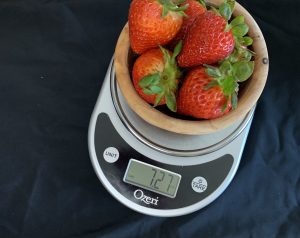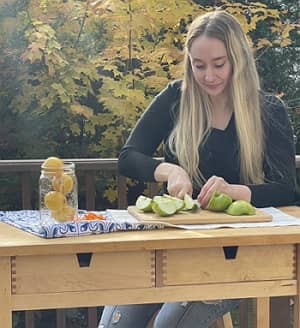Discover how mindful portion control can improve your health, reduce food waste, and support sustainable food systems. Learn practical tips for conscious eating and balanced living.
Are you tired of hearing the same old weight-loss mantra, “portion control”? I know I am. As a nutrition professional, I’ve seen this phrase lose its impact from overuse. But here’s the thing—while it’s often thrown around lightly, the concept of mindful eating has the potential to transform both our health and the environment. Let’s rethink how we approach this topic.
A Personal Take on Balanced Eating
Growing up, I didn’t indulge much in snacks or junk food. My family didn’t stock candy, but at Friday night Shabbat dinners, we always had dessert—usually more than one. The rule? Either one portion of a dessert or half of both. This became a family joke: “Can I please have a little bit of both?”
That mentality—enjoying a small amount of everything—shaped my relationship with food. It’s not about restriction but balance. I love food, and sometimes I may over-serve myself or add too much of an ingredient when cooking. But paying attention to these choices is essential. Nutritionists like me often use food journals or 24-hour recalls to help clients gain awareness of their eating habits. This practice teaches the most valuable skill: becoming a conscious eater.

The Benefits of Mindful Portions
When you pay attention to how much you’re eating, you may discover you’re consuming more than necessary—or realize there’s room to enjoy a bit more! Sometimes, a small serving of several dishes is more satisfying than overindulging in one.
Eating the right amount for your body isn’t just about weight management—it’s a kindness to your overall well-being. Overeating regularly can lead to bloating and weight gain. When we slow down and measure portions, we can better control caloric intake, feel more energized, and even avoid the roller-coaster of yo-yo dieting.
Lately, I invested in a food scale, and while it’s important not to become overly fixated, it’s a helpful tool for understanding portion sizes. The goal here isn’t restriction but awareness: you can enjoy your meals without overdoing it.
One of the most overlooked benefits of portioning your meals is how it can save you money and reduce waste. When you know how much you actually need, shopping becomes more intentional. You’re not guessing quantities—you’re buying exactly what will be used.
This conscious buying not only helps reduce food waste but can also lead to a more sustainable food system. If we all became more mindful, grocery stores could better stock supplies, and farms could grow more efficiently. In fact, reducing food waste is one of the simplest ways to support sustainability in our food system, as highlighted in this Civil Eats article that discusses how Big Food monopolies contribute to food insecurity.
The Bigger Picture
If you’re fortunate enough to never have worried about your next meal, you may not think about how your food waste affects the planet. But as individual consumers, we can make a difference. By reducing waste and choosing where we source our food, we help create a more sustainable and equitable food system. Every small step counts.
Mindful portioning might seem insignificant, but it can spark a domino effect. Your conscious decisions can influence others, and together, these small shifts can have a global impact. For more tips on sustainable, seasonal eating, check out our article on sustainable food systems.
Let’s start with portioning and watch how small, mindful changes can lead to big benefits for both your health and the world around you.
To learn more about what Dining With Nature offers for nutrition care – hit the Explore The DWN Programs button below or take a look at our Services page.


